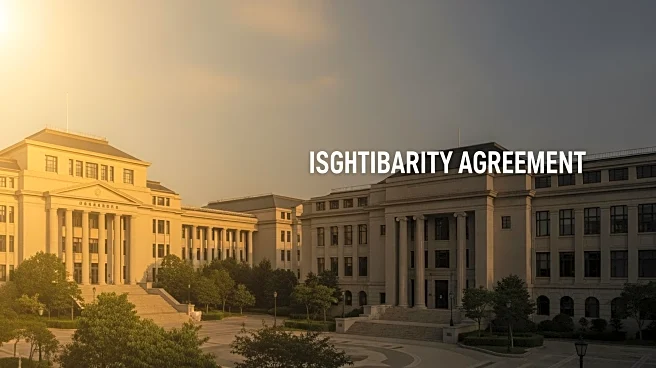What's Happening?
Cornell University has finalized a $60 million agreement with the Trump administration to restore over $250 million in federal funding that had been previously halted. The deal requires Cornell to pay
$30 million to the federal government over three years and invest another $30 million in research programs aimed at benefiting U.S. farmers. Additionally, Cornell will provide anonymized undergraduate admissions data for a comprehensive audit and conduct annual surveys to assess the campus climate, particularly for students with shared Jewish ancestry. This agreement follows a period of financial strain due to funding freezes and grant terminations, which had impacted research and academic programs at the university.
Why It's Important?
The restoration of federal funding to Cornell University is significant as it alleviates financial pressures that have stalled research and threatened academic programs. The agreement reflects the Trump administration's broader efforts to influence campus policies, particularly concerning diversity, equity, and inclusion (DEI) programs. By targeting DEI policies, the administration aims to reshape institutional practices at Ivy League schools. This deal could set a precedent for future negotiations between the government and educational institutions, impacting how universities manage federal funding and compliance with anti-discrimination laws.
What's Next?
With the agreement in place, Cornell University will focus on implementing the terms, including the investment in research programs and compliance with data audits. The federal government will restore all previously terminated funding and close pending investigations into the university. The broader implications of this deal may influence other universities facing similar scrutiny from the administration, potentially leading to more agreements that address DEI policies and federal funding compliance.
Beyond the Headlines
The deal between Cornell University and the Trump administration highlights ongoing tensions between academic freedom and government oversight. The focus on DEI policies raises questions about the balance between promoting diversity and adhering to federal guidelines. This development may spark debates on the role of government in shaping educational policies and the autonomy of academic institutions.












